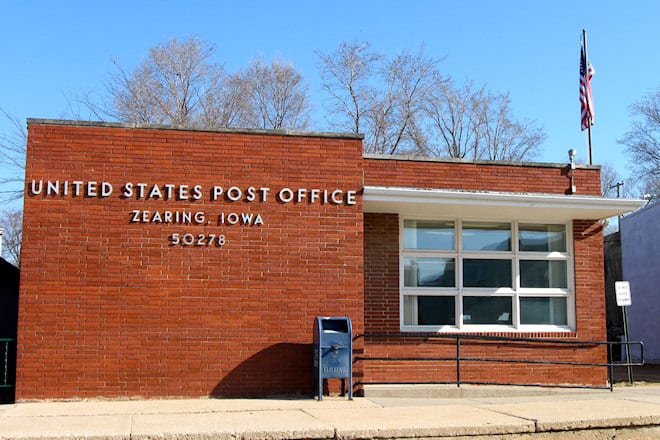April 12, 2012
Guest Commentary
By Charlene LaVoie
What does 45 cents buy today? Not a cup of coffee, not a pack of gum, not a newspaper. But for 45 cents you can mail a letter to anywhere in the United States and be assured that it will reach its destination in one to three days. You also get return service if it cannot be delivered.
Daily, letter carriers traverse 4 million miles, carry 563 million pieces of mail to every home. They use snowmobiles, bush planes, mail boats, mules into the Grand Canyon. A nationwide system that links all people and communities. Without tax dollars!
It is not the first postal panic. When the telegraph was introduced, people said there was no use for the U.S. Postal Service. When the telephone came onto the scene, the death of the post office was again proclaimed.
Some claim that the Postal Service is unprofitable. It is not the purpose of government to be profitable and no one argues that the Pentagon, FBI, FDA, FEMA, etc. should be. Federal law requires the Postal Service to provide the maximum level of service while remaining self-sufficient and fiscally sound. But it also provides that “No small post office shall be closed solely for operating at a deficit — it being the specific intent of Congress that postal services be insured to residents of both urban and rural communities.”
The mail delivery is such an essential public service that it is part of the Constitution (Article I, Section 8). The postmaster general position was a cabinet post in the executive branch until 1971. President Richard M. Nixon changed the 196-year-old public service institution into a quasi corporation with a board of governors that supports privatizing the post office.
In 2006, Congress adopted the Postal Accountability and Enhancement Act that requires the Postal Service to prefund future benefits for its 572,000 existing and future employees for 75 years. It is required to do this by 2016. This is a $5 billion annual burden imposed on no other public or private entity.
The Postal Service Inspector General recently wrote that the Postal Service retirement and health benefits funds are flush and significantly exceed the amount the government and private corporations have on hand for retiree pension and health care. For example, while the Postal Service pension fund is 100 percent funded, the federal government pension fund is only 42 percent funded and Fortune 500 companies are 80 percent funded.
Some of the proposed solutions to save the Postal Service fall short. The current Lieberman/Carper/Collins/Brown legislation proposals are anti-business and designed to lose further market share and destabilize the Postal Service: end Saturday delivery, close 3,800 of the 32,000 post offices (80 percent are rural), close hundreds of processing centers, and increase stamp prices beyond inflation. The savings estimate is $200 million — only three-tenths of 1 percent of the Postal Service operating budget.
Proponents of a healthy postal system suggest the following solutions:
• Expand services and hours. Stop outsourcing to competitors such as Federal Express and UPS.
• Expand the store. The post office should be a one-stop shop for government services — fishing licenses, notary and other products.
• Go digital. The post office should be an Internet hub. The nationwide postal service has an Internet system.
• Convert the vehicle fleet to electric.
• Limit salaries of top executives. The postmaster general and 38 executive officers earn private sector incomes and bonuses. The postmaster general should be returned to a cabinet position, earning similar salaries and no bonuses.
• Establish a postal savings system. From 1911 to 1966 the Postal Savings System provided federally insured deposits. The creation of the FDIC led to the end of postal banking. But it is relevant again and is better than predatory financial services such as pay day lenders, pawn shops, check cashing outlets, outrageous bank fees and high required minimum deposits. It gets money out of hiding, and provides low cost, convenient services and promotes immigrant savings. Many countries provide banking in the national post offices.
• Most important: Release the Postal Service from the required $5 billion annual payment into a fund that is already flush with funds.
The postal system is not a business. It was established in 1751 as a constitutionally established federally operated public service.
Contact Sen. Joseph Lieberman to urge him to strengthen the proposed 21st Century Postal Service Act (S.1789). It must release the Postal Service from the $5 billion annual payment. Email him at http://lieberman.senate.gov or call 800-225-5605 begin_of_the_skype_highlighting 800-225-5605 end_of_the_skype_highlighting.
For more ideas and information, go to www.savethepostoffice.com.
Charlene LaVoie is Winsted’s community lawyer.



